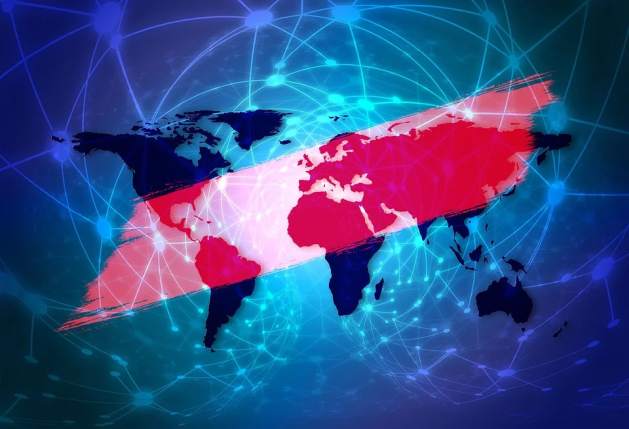Diverse Voices Should Be Represented in Coronavirus Experts on TV

ILLINOIS, United States, Apr 6 2020 (IPS) - During a crisis, such as the novel coronavirus, whose impact changes with every passing minute, the urge to listen to and watch the news, and get firsthand insights and real time updates can be constant. Indeed, millions of Americans are frequently checking the news. I know I am. What I’ve noticed on three of the major TV stations I’ve watched across the day is the absence of diversity in the experts commenting on the pandemic. This is inexcusable.
The United States is made up of people of many different races and ethnicities, many of whom are professional experts in fields relevant to the coronavirus, so why are those we are hearing from mostly people from one race-white?
The United States is made up of people of many different races and ethnicities, many of whom are professional experts in fields relevant to the coronavirus, so why are those we are hearing from mostly people from one race-white?
Further, countries in other parts of the world have faced pandemics before – pandemics like Ebola, Lassa Fever, SARS – and we should be turning to experts in those countries for insight into how to act now, but we aren’t. When I finally saw an article about what “Africa can teach the world about beating the coronavirus,” I shook my head to see the author was white.
As a scientist, a person of color from Kenya, I keep finding myself switching off the TV, or moving from one news channel after another, in search of an expert voice that looks like me. And it’s not just racial diversity that is lacking.
We also should be hearing from more experts who are women, people with disabilities and people from the LGBQT community. How is the pandemic affecting them? What can we learn from their experiences?
Not only are we missing out on important information by limiting the types of experts in the news, but it perpetuates the narrative that health experts are mainly white. To see such a glaring lack of diverse expert voices in 2020 is disheartening.
Of course, while the data shows that these minority groups are still underrepresented in health occupations and fields like medicine, many still work in the health care as nurses, medical doctors, epidemiologists, disease spread modelling experts and so on.
In addition, many people of color are graduating with MD’s and PhD degrees. We also can call on experts from the African continent and other continents that have previously gone through previous pandemics including the Ebola virus. They have been through something like this and survived. They can help us.
It’s not too late to change who we see in the news. Going forward, expert voices from minority and underrepresented groups must be centered in the ongoing pandemic conversations. It matters who is featured. Failing to tap onto diverse expert voices hurts us all. It actively crops these voices out and reduces the chances that their views and takeaways will help inform the ongoing discussions.
Additionally, tapping into diverse expert voices sends a message to young people and the public at home, watching news, and aspiring young people that they, too, can be the expert voice on issues of our day.
In contrast, by not tapping onto different voices, we continue to perpetuate the narrative that only certain people can be experts. Only certain people get to comment on a global pandemic that is affecting all-rich and poor, black and white, young and old.
Furthermore, tapping on diverse voices helps to bring out the unique challenges, people of color and minorities are facing. For example, recently, Senator Kamala Harris was interviewed by CNN’s anchor Don Lemon.
During her interview, she raised several challenges that were not being discussed. She shared about the 3 million children of color that do not have access to broadband, and talked about how black women have pre-existing health challenges including asthma, blood pressure that put them at higher risk.
One of the approaches that can remedy this problem is to ensure that there are databases, containing a list of these diverse expert voices. These lists should also be made available to the media channels. She Source for example, has a database of female experts.
At the same time, news media channels and major newspapers also need to be proactive in setting policies and rules to ensure that diversity in experts being called upon to comment on the news is the norm. It is the 21st century, and we have a big pool of women and minority and underrepresented groups health experts.
Importantly, the news anchors must also take a stand on diversity and inclusion. For every segment they are running, they should do their best to bring out diversity. Imagine if all news anchors for major channels such as CNN, CNBC, and NBC would take a stand-in appreciation and support of qualified and competent health experts from minority and underrepresented groups that fail to be included?
During these unprecedented times, turning to diverse experts will go a long way in helping to solve the pandemic as well as showing aspiring future health experts that they, too, can be experts.
Evermore, news media channels must continue to tap on expert commentary from people of color and those from marginalized groups. As CNN’s anchor “Chris Cuomo” always says—we are in these together, let us also be use the same phrase to showcase that the experts fighting this novel disease are equally diverse.
Dr. Esther Ngumbi (@EstherNgumbi) is an Assistant Professor at the Entomology Department and African American Studies, University of Illinois at Urbana Champaign. She is a Senior Food security fellow with the Aspen Institute.
- ADVERTISEMENTADVERTISEMENT


IPS Daily Report







